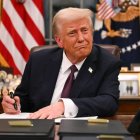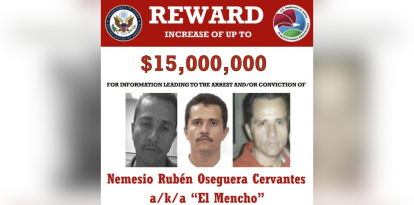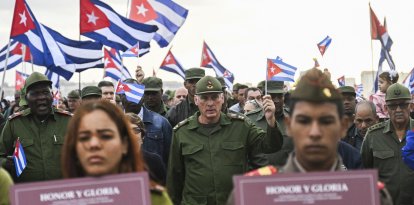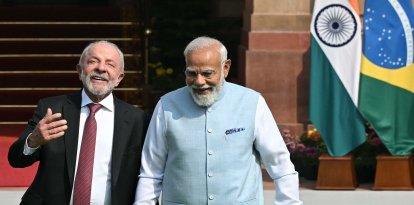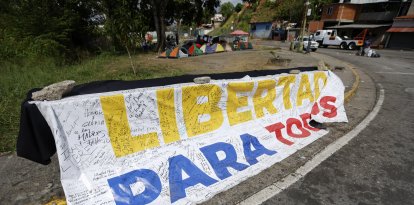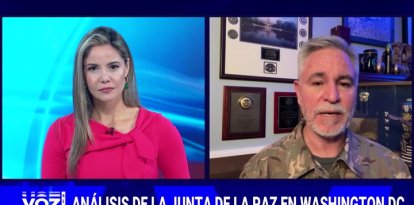China responds to the CIA: It is "extremely unlikely" that COVID-19 was caused by a laboratory leak
The Chinese Communist Party cited a World Health Organization (WHO) study, while conveniently omitting that the WHO itself acknowledged it could not rule out the lab leak theory.

Covid sampling in Beijing.
On Monday, China rejected the lab leak theory as the origin of COVID-19, following a statement from the Central Intelligence Agency (CIA) that labeled it the most likely hypothesis.
It did so through its Ministry of Foreign Affairs spokesman, Mao Ning, who said: "The conclusion that a laboratory leak is extremely unlikely was reached by the China-WHO joint expert team based on field visits to relevant laboratories in Wuhan.”
Ning referenced two trips made by teams from the World Health Organization (WHO). Chinese authorities delayed the arrival of these international teams for months, with the visits finally taking place in mid-2020 and early 2021. Some of the scientists involved reported obstacles that hindered their research.
Although the UN health agency concluded that natural contagion was the most likely cause of the pandemic, it also made it clear that no theory could be ruled out with certainty. Additionally, in December, marking the fifth anniversary of the Wuhan outbreak, the WHO once again urged the Chinese government to ensure transparency in order to clarify the origin of COVID-19.
"We continue to call on China to share data and access so we can understand the origins of COVID-19. This is a moral and scientific imperative. Without transparency, sharing, and cooperation among countries, the world cannot adequately prevent and prepare for future epidemics and pandemics."
Lab theory: From "conspiracy" to CIA backing
The theory that the Covid virus leaked from a laboratory was initially dismissed by authorities, some of whom even labeled it a "conspiracy theory." Among those was Anthony Fauci, the public face of the U.S. pandemic response at the time, who was also in charge of the National Institute of Allergy and Infectious Diseases (NIAID) and served as an advisor to the president.
Despite the authorities' initial rejection, the laboratory leak theory gained traction, leading to a crisis of confidence in national institutions like the NIH (National Institutes of Health) and international organizations such as the WHO. Years later, Fauci himself acknowledged that a laboratory leak was a possible explanation.
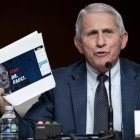
Politics
Trump cancels publicly funded security for Fauci: 'He can hire his own security'
Sabrina Martin
The lab leak hypothesis was one of the topics the Biden administration closely monitored on social media, pressuring platforms to censor those who promoted it, as recently acknowledged by Mark Zuckerberg, CEO of Meta.
The latest endorsement of the lab leak theory came just days ago in a statement from the CIA, which identified it as the most likely explanation. However, the agency acknowledged having a "low" level of confidence in its conclusion, stating that both the lab leak and natural contagion theories remained plausible.
Just days ago, the new CIA director, John Ratcliffe, confirmed that unraveling the origins of COVID- 19 would be one of his top priorities.





